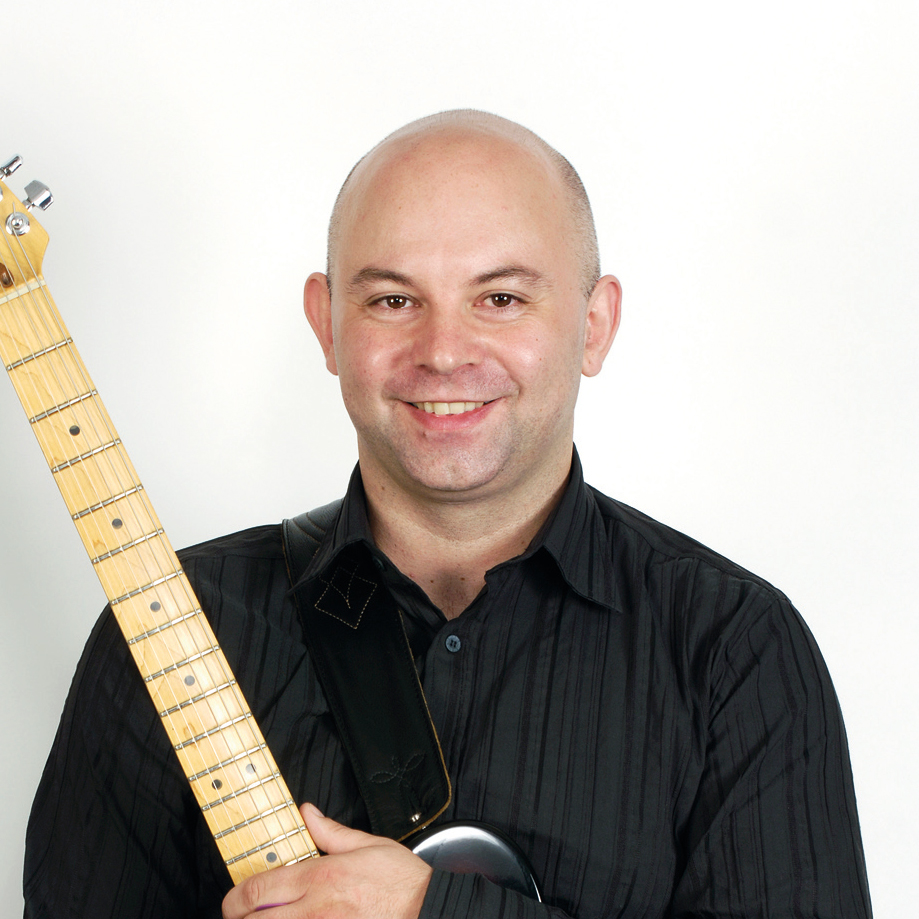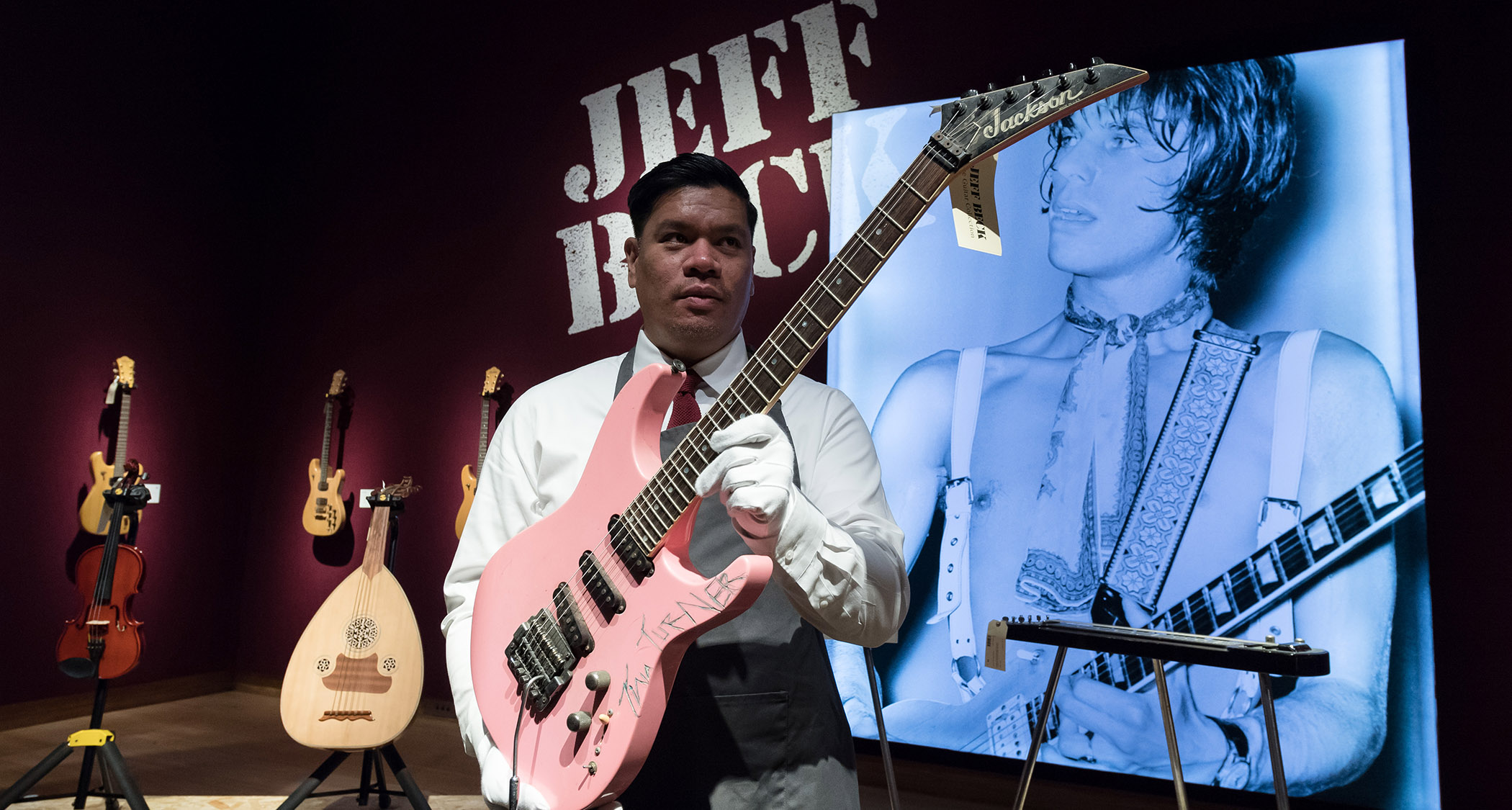“The faster you get in the zone, the better the music is, so why wait?” Dean Brown was a fusion master who played with everyone from Marcus Miller to Eric Clapton – and maintained there are only two rules in music
Session ace, author and teacher, and a guitarist who put mind, body and soul into his playing, the late Dean Brown was a fusion legend. We pay tribute to his physical style

Everyone at Guitar Techniques was saddened to hear of the passing of Dean Brown, the incredible American jazz-fusion guitarist and session musician.
Perhaps best known as a frequent collaborator with the virtuoso bassist and producer Marcus Miller, or maybe for his work with heavyweight jazz artists such as Michael Brecker and The Brecker Brothers, Joe Zawinul, Billy Cobham, and David Sanborn, Brown fitted in perfectly among jazz-fusion’s elite. The Sanborn connection led to Dean working with Eric Clapton.
As a sideman, Dean’s guitar featured on way over 100 albums, and he also released an impressive portfolio of recordings under his own name. Alongside his performance credits, Brown was an active educator, with a number of books, magazine articles and video lessons to his credit. He was also a regular instructor at The Musician’s Institute in Hollywood.
Dean’s playing was incredible broad, with equally impressive rhythm and lead guitar skills, as well as wonderful time feel, super articulate technique and a fantastic tone.
Funk was often at the heart of his playing, with a driving, propulsive rhythmic feel to everything he played, and an incredible sense of commitment and connection to each note that he delivered.
It’s clear almost immediately when hearing him play that here was a player that had studied a huge range of styles, covering rock, blues, jazz, Latin and much more besides.
All of these sounds were present in both his rhythm and lead guitar vocabulary, and you really got the sense that he absolutely loved all of this music and did everything in his power to deliver the very best he could, consistently and successfully.
All the latest guitar news, interviews, lessons, reviews, deals and more, direct to your inbox!
He truly felt every note in his body and did everything he could to make the music the best it could be, stating “The faster you get in the zone, the better the music is, so why wait?”
A remarkably animated performer, Brown literally couldn’t resist the urge to physicalise every performance, reputedly even in the studio or when woodshedding at home. He truly felt every note in his body and did everything he could to make the music the best it could be, stating “The faster you get in the zone, the better the music is, so why wait?”
The musical examples that accompany this article explore a range of crucial areas of Dean Brown’s playing, specifically relating to his soloing style.
We begin with a selection of 10 classic Brown-inspired approaches, moving through examples that integrate ideas from a broad range of styles, with some concepts that will allow you to use chromaticism, balance inside and outside playing, develop your rhythmic fluency, along with your facility with sophisticated sounds such as the melodic minor, diminished and chromatic scales.
We round off this exploration of Dean’s musicality with a cohesive solo study, starting in B minor but moving through a selection of keys that contextualises these ideas in a set piece. Use these as an intense technical etude for you to learn entirely as written, or as a menu of potential concepts and topics that you can use to inspire your own creative ideas, lines and licks.
Technique focus: Mix and match your influences
One of the most appealing aspects of what we broadly term fusion music is that, by definition, you have permission to blend every style of music that you like, in any combination, to create your own unique sound.
You’ll find funk, jazz, blues, rock, country, Latin, Indian and other Eastern sounds present in this music, so you have the green light to bring everything you know to the table. You’d hear Dean frequently playing lines that you might usually associate with a tenor saxophonist, such as his friend and colleague Michael Brecker, or alto sax legend Charlie Parker, all delivered with a fiery electric tone that Jimi Hendrix would be proud of.
He might then follow this with a salvo of auto-wah trumpet-style lines reminiscent of Michael Brecker’s brother and also long time Brown bandmate, Randy. Being so open minded, so creative and so explorative was certainly one of Dean’s many considerable musical attributes.
As he once famously stated, “There are only two rules in music: it must be beautiful and it must feel good!” I hope the following examples fulfil Dean’s brief!
Example 1. 10 Dean Brown concepts
These concepts and licks are all in the key of B minor/Dorian against a B minor 7 to B minor 6th vamp. We begin with a selection of bebop lines in 1a), moving onto rhythmic phrases based around groups of five and seven in 1b). Then we have with a line that demonstrates sidestepping, moving the same motif around in semitones in and out of tonality.
Example 1d) focuses on rhythmic manipulation, where all the notes stay the same but their position relative to the time shifts. In 1e) we have two ideas that exploit quartal harmony (based on 4ths), while 1f) looks at triad pairs, D and E major (D-F#-A and E-G#-B), combining their notes to create a six-note scale (B-D-E-F#-G#-A).
B melodic minor (B-C#-D-E-F#-G#-A#) is our focus in 1g), and the diminished scale (B-C#-D-E-F-G-Ab-A#) in 1h), and a wholly chromatic idea in 1i). We conclude in 1j), with a Pentatonic line using all five CAGED B minor pentatonic (B-D-E-F#-A) shapes.
Example 2. Full solo
We round off this look at Dean’s playing with a cohesive solo, again based around a minor 7th to minor 6th groove, although here we modulate up a Minor 3rd (three frets) every four bars, moving through B minor, D minor, F minor and G# minor.
The concepts follow the ideas in our examples, from bebop-inspired 16th-note lines to classic pentatonic phrasing. Dean would exploit each idea in much greater depth, so consider this solo a taster for your own experimentation .
John is Head of Guitar at BIMM London and a visiting lecturer for the University of West London (London College of Music) and Chester University. He's performed with artists including Billy Cobham (Miles Davis), John Williams, Frank Gambale (Chick Corea) and Carl Verheyen (Supertramp), and toured the world with John Jorgenson and Carl Palmer.

